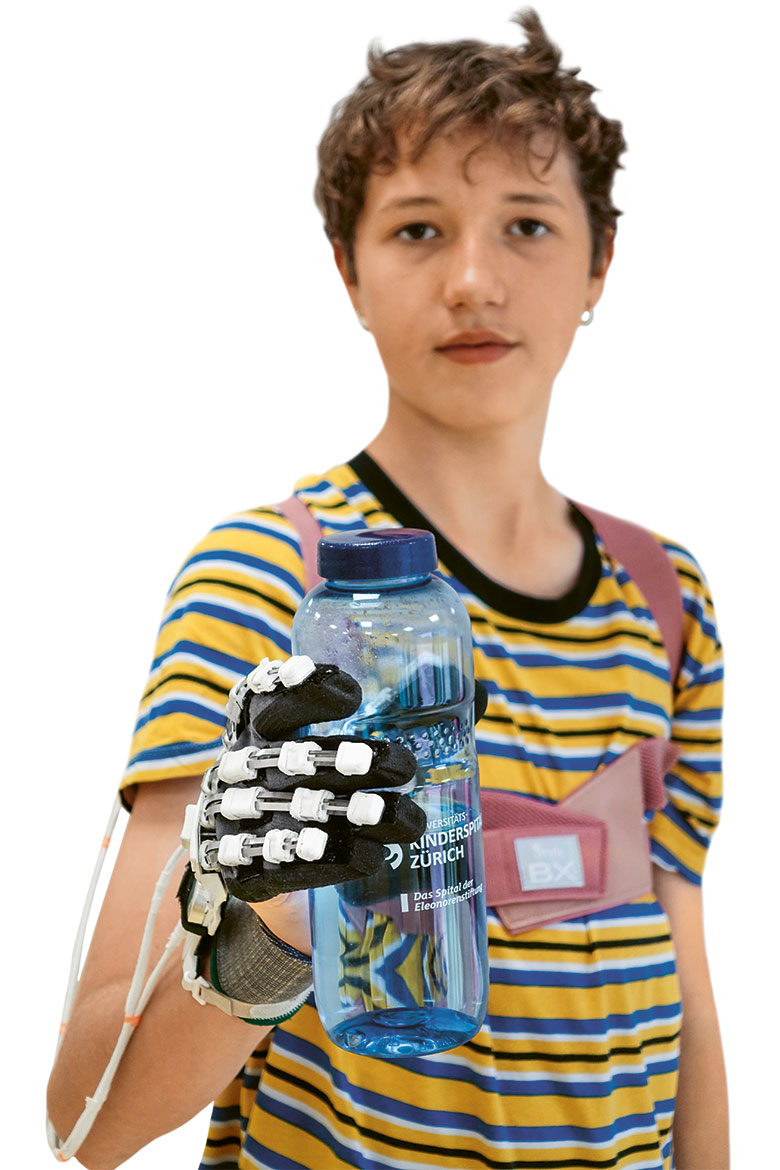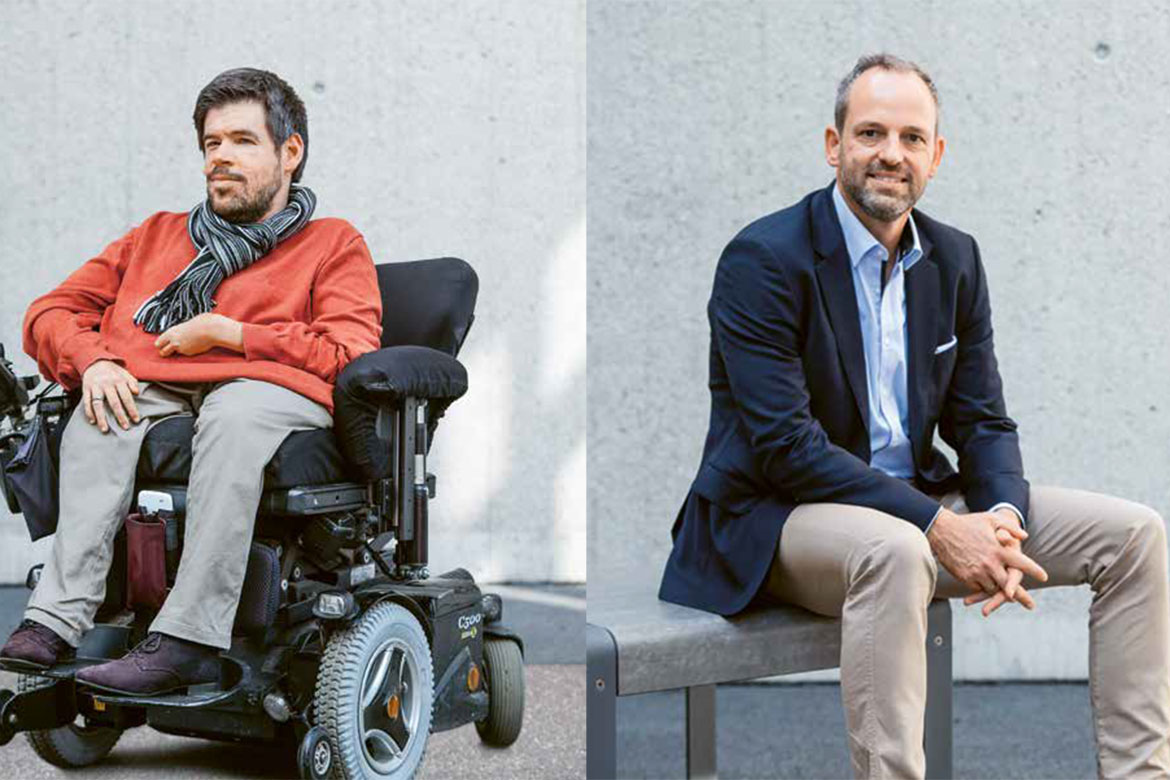REHABILITATION
An exoskeleton for kids
The exoskeletons made by Zurich University Children’s Hospital and ETH Zurich are intended to improve hand capacity and achieve a high degree of acceptance.

If children can improve their grasp with this glove, they’ll be more keen to use it. | Image: Kinderspital Zürich
Opening bottles, building Lego, playing cards – if a child’s hand has been paralysed, by a stroke, for example, they will no longer be able to do any of these things like before. A team from ETH Zurich and Kinder-Reha Schweiz at Zurich University Children’s Hospital has developed an exoskeleton to support finger movement that is suitable for use by small hands. A study has shown that nine children were able to accept this technology without any problems, especially when it enabled them to grasp objects and hold them better. They will also be allowed to take this exoskeleton home with them – as soon as a more robust model has been made available.




